Roger Ebert considered Ikiru--Kurosawa's masterpiece that graces the upper left corner of this blog--"one of the few movies that might actually be able to inspire someone to lead their life a little differently." I don't know that such praise can be heaped upon a film that succeeds at this in "scared straight" instead of uplifting fashion, but if there is such a film, that film is Under the Volcano.
Merriam-Webster defines wrath as "strong, vengeful anger or indignation," and when we meet Geoffrey Firmin (Albert Finney) on the Day of the Dead,1938 in Cuernavaca, Mexico, this sin is not immediately apparent. He wanders the festivities in a tuxedo, and sunglasses at night, on his way to a Red Cross banquet. He meets his friend Dr. Vigil for a drink, and soon enough they are at the banquet, helping themselves to the bar. We learn Geoffrey is recently retired (quite possibly removed) from the position of British consul, and despite his apparent alcoholism, he has a wit about him that would be hard to match. Upon introduction to the new German consul, he quickly dispels the recent Munich Agreement between Britain and Germany, a disillusionment that easily explains why he's no longer fit for service, or perhaps vice-versa.
Geoffrey speaks of his recent divorce. He only learned of it by letter, as his wife left him a year previously. After being shooed out of the banquet, he ends up in a church with the doctor, who urges him to pray for his wife's return. After rebuking the doctor, "It's like asking the Fairy God Mother for three wishes," the doctor prays for him. To no one in particular, Geoffrey finally admits "I'm dying without you. Come back to me, Yvonne."
And the very next morning, Yvonne (Jacqueline Bisset) returns.
What would be the turning point towards redemption in a romantic story is instead but a trigger for Geoffrey's wrath. Geoffrey's half brother Hugh (Anthony Andrews) returns the same day from a trip to Mexico City, and it's quickly revealed that he and Yvonne had an affair before she left, and that Geoffrey is well aware of it. Though long past and deeply regretted by both Yvonne and Hugh, Geoffrey's elation at his wife's return is quickly consumed by this old wound.
So begins Geoffrey's death. Enjoying a leisurely day, Hugh and Yvonne catch up, with Hugh revealing his regrets at leaving the Spanish Civil War behind, and Geoffrey tells stories from World War I. Where Hugh displays vigor and an eye toward the future, Geoffrey revels in what's past. His cutting remarks toward Hugh and Yvonne about their affair finally take their toll. When confronted, it's a confession without repentance:
"Hell, my preference. I choose hell. Hell is my natural habitat."
Under the volcano, indeed.
Wrath, or its lesser form resentment, has been described as injuring oneself and expecting the person one resents to hurt. The cliché is not quite the perfect parable, for often it does hurt others. Watching wrath consume Geoffrey is painful to us, and we barely know him. There is much to the story--Geoffrey's alcoholism, the war that he knows is coming, the miracle of his wife's return tempered by the simultaneous return of her former lover--but it's all window dressing. Geoffrey won't forgive, "not in this world," and it kills him.
Under the Volcano was one of John Huston's last films, and displays the craftsmanship of a master. Malcolm Lowry's book was considered unfilmable (I own the novel, and after two false starts I'm curious whether it's even readable), and Huston delivered. He lived many years in Mexico, and from Treasure of Sierra Madre (1948) to Night of the Iguana (1964) to this, always paid tribute to its beauty without sacrificing anything. In addition to Finney's performance, Bisset and Andrews are outstanding, as is the entire supporting cast.
Forgiveness is a most difficult concept to Christians and non-Christians alike. Unlike a character as far out as Harold in The Long Good Friday, empathy with Geoffrey is easier. Unfortunately, empathy with his position is, too. We all harbor wounds at one time or another, rationalizing wrath with ease. Indeed, many of us believe there are sins unforgivable in this world, and treat wrath as a symbiont rather than a parasite.
Few of us will suffer as Geoffrey, but we only deceive ourselves if we believe our wrath is any less dangerous than his.
Wrath, or its lesser form resentment, has been described as injuring oneself and expecting the person one resents to hurt. The cliché is not quite the perfect parable, for often it does hurt others. Watching wrath consume Geoffrey is painful to us, and we barely know him. There is much to the story--Geoffrey's alcoholism, the war that he knows is coming, the miracle of his wife's return tempered by the simultaneous return of her former lover--but it's all window dressing. Geoffrey won't forgive, "not in this world," and it kills him.
Under the Volcano was one of John Huston's last films, and displays the craftsmanship of a master. Malcolm Lowry's book was considered unfilmable (I own the novel, and after two false starts I'm curious whether it's even readable), and Huston delivered. He lived many years in Mexico, and from Treasure of Sierra Madre (1948) to Night of the Iguana (1964) to this, always paid tribute to its beauty without sacrificing anything. In addition to Finney's performance, Bisset and Andrews are outstanding, as is the entire supporting cast.
Forgiveness is a most difficult concept to Christians and non-Christians alike. Unlike a character as far out as Harold in The Long Good Friday, empathy with Geoffrey is easier. Unfortunately, empathy with his position is, too. We all harbor wounds at one time or another, rationalizing wrath with ease. Indeed, many of us believe there are sins unforgivable in this world, and treat wrath as a symbiont rather than a parasite.
Few of us will suffer as Geoffrey, but we only deceive ourselves if we believe our wrath is any less dangerous than his.



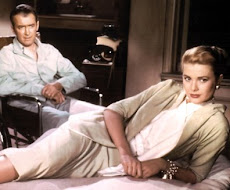_01.jpg)





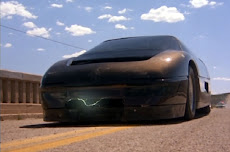
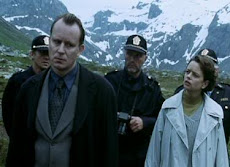







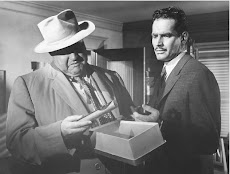
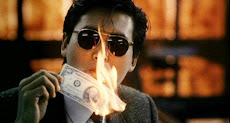

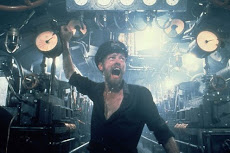
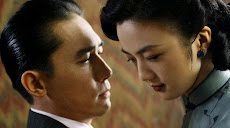

No comments:
Post a Comment